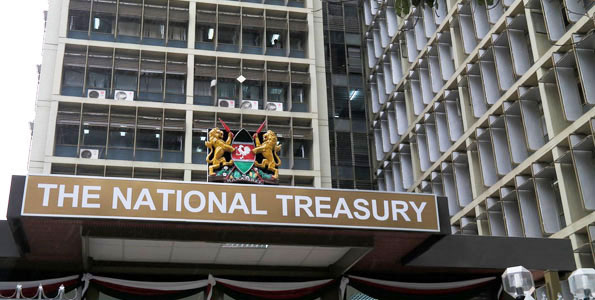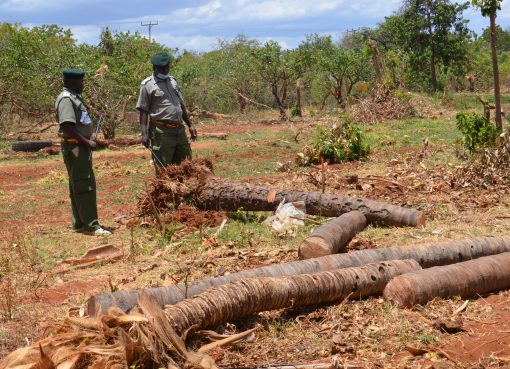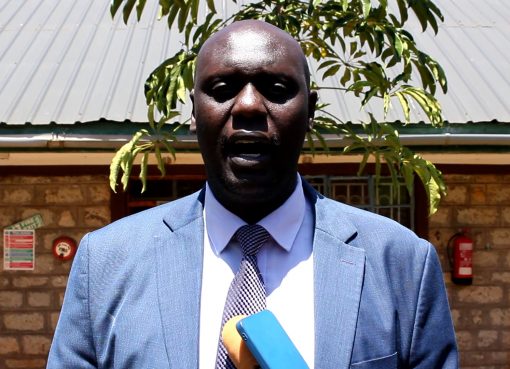The country’s fourth review under the Extended Fund Facility/Extended Credit Facility (EFF/ECF) programme, supported by the International Monetary Fund (IMF) was successfully completed on November 8, 2022.
National Treasury and Economic Planning Cabinet Secretary Njuguna Ndung’u has confirmed that this review was conducted from October 25 to November 8, 2022, through an in-person IMF Mission led by Mary Goodman and Tobias Rasmussen.
In a statement, Prof Ndung’u explained that Kenya sought and got approval of the 38 months EFF/ECF programme from the Executive Board of the IMF on April 2, 2021.
“The programme aims to among others, strengthen Kenya’s Covid-19 response and maintain support for those most impacted by shocks to the economy, reduce debt vulnerabilities through a revenue-driven fiscal consolidation and stabilise the growth in public debt, advance the structural reform, governance agenda and address weaknesses in State-Owned Enterprises (SOEs) and strengthen the monetary policy and support financial stability,” he said.
The CS added that based on the review, Kenya has made significant progress on fiscal adjustments required to address debt vulnerabilities. The Government met all the agreed quantitative performance targets as well as the indicative targets as at end June, 2022 under the program.
“Notably, tax collection exceeded the set target by 0.7 percent of Gross Domestic Product (GDP), while both the primary balance and the Net International Reserve (NIR) targets were met by comfortable margins,” said Prof Ndung’u.
According to the CS, upon approval of this review by the Executive Board of the IMF, Kenya will have access to Special Drawing Rights (SDR) 336.54 million (equivalent to US$ 433 million). This access includes an augmentation of SDR 162.84 million to the initial program that was agreed during this fourth review to cover among others, spending pressures due to the ongoing drought.
He explained that the programme has strengthened Kenya’s ability to navigate through the recent multiple shocks- the Covid-19 pandemic, the impact of the war in Ukraine, the tightening global financial market conditions and the continuing drought affecting food and energy prices.
“The economy has demonstrated remarkable resilience and grew by 6.0 percent in the first half of 2022 (6.8% in Q1 and 5.2% in Q2 of 2022). Taking into account the adverse impact of the drought conditions, inflationary pressures as well other external pressures, the economy is projected to grow by 5.5 percent in 2022,” he said.
The CS said that the new administration has carefully reflected on the current environment and taken decisive measures to create fiscal space and sustain the reduction in fiscal deficit to signal the beginning of fiscal consolidation.
Ndung’u highlighted that the National Treasury and Economic Planning has rationalized the budget in line with the recent directive by President Dr William Ruto.
The CS said that his ministry has restrained emerging expenditure pressures, but also safeguarded against contracting economic activity and will be proposing through a supplementary budget, a reduction in the fiscal deficit to 5.8 percent of GDP in the Financial Year 2022/23 from 6.2 percent of GDP in the approved budget.
“In July 2022 the Government received concessional financing from the IMF following the conclusion of the third review. Additionally, engagements are ongoing with multilateral and bilateral financial institutions for concessional financing,” he said.
He continued: “We have noted a turnaround in domestic liquidity for Government securities in the recent auction. The Government will continue correcting for market failures and protect competitiveness to enhance the performance of the domestic financial market.”
The CS insisted that the Government will pursue policies designed to lower the cost of living, eradicate hunger and promote accessibility to affordable credit to Kenyans.
“The key focus will be to support agricultural productivity through lowering the cost of inputs. In this respect, the Government has provided fertilizer to farmers at subsidized prices. Through the Hustler Fund, the Government will target to support the vast majority of Kenyans with financial products that are accessible and affordable,” said the CS.
He explained that the Hustler Fund is an intervention to correct market failures at the bottom of the pyramid where the Micro, Small and Medium Enterprises (MSMEs) and individual traders operate from.
Finally, the Government will, among others, rollout interventions targeted at increasing the supply of affordable housing through low-cost mortgages.
By Joseph Ng’ang’a





